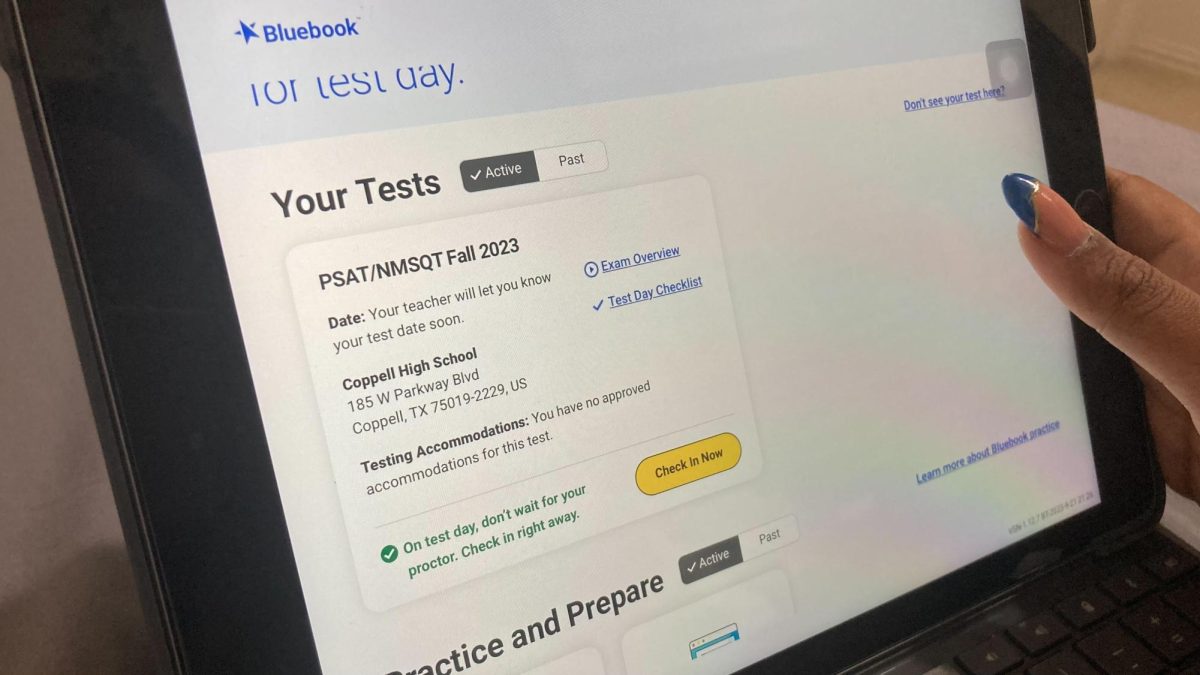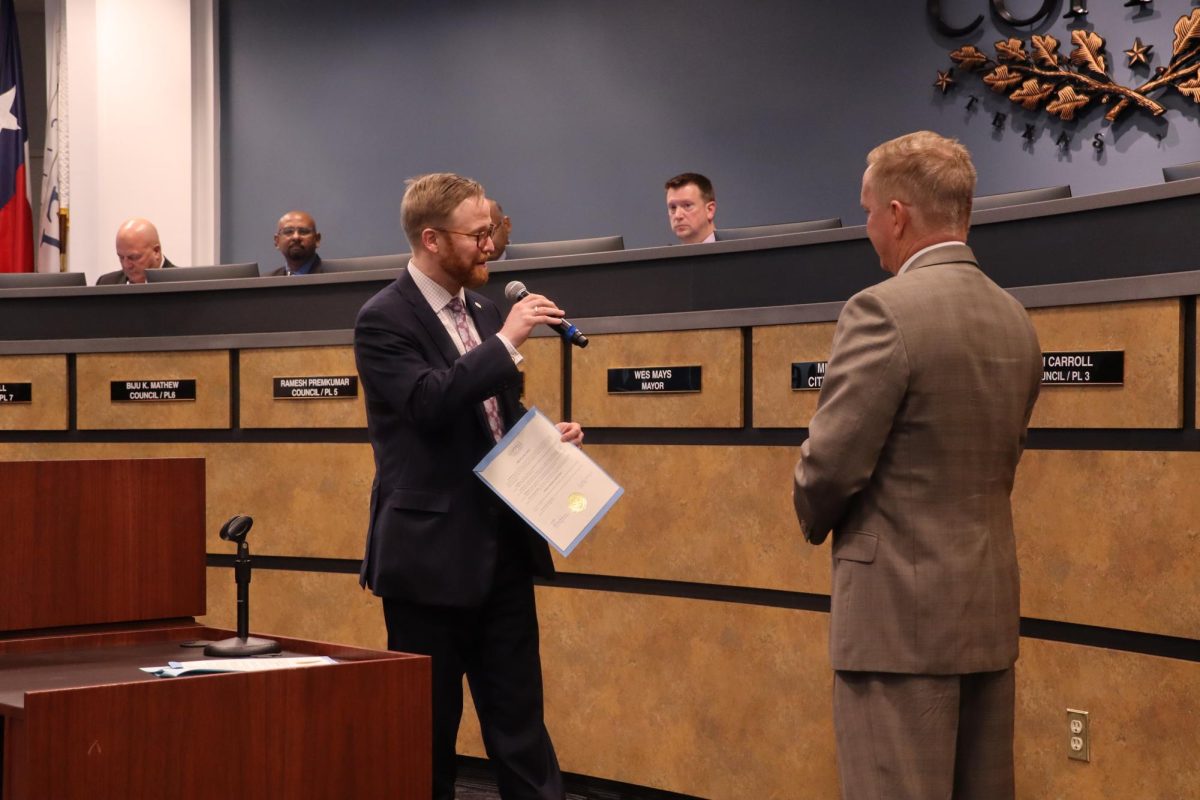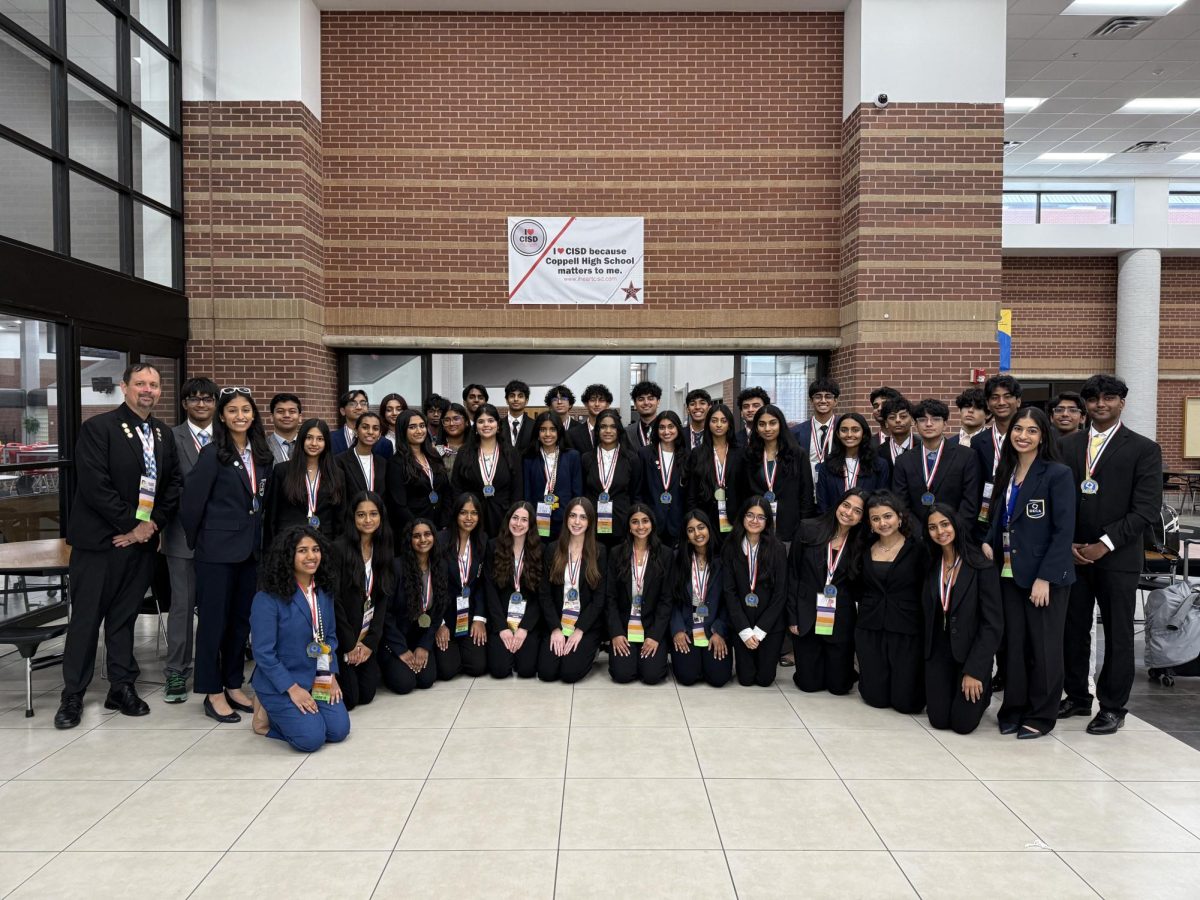The digital PSAT was administered to sophomores and juniors at Coppell High School on Oct. 5. Less than an hour before test takers were set to finish the exam, all tests were voided due to pervasive technology issues.
According to associate principal Zane Porter, the culprit was found to be the Bluebook application, which crashed for a great number of students, prohibiting them from completing their test.
“Initially, the main problem was that the Wi-Fi and bandwidth in our gymnasiums was not strong enough to take on the Bluebook application,” Porter said. “We then realized, once students with Wi-Fi issues moved to different rooms across the building, that the application itself was crashing. The servers from College Board couldn’t handle all the tests that were being taken on that day.”
CHS junior Yashitha Chunduru tested in the Small Gym and returned from break after the reading section to find that her Bluebook application would crash each time she attempted to type an answer.
“It was quite stressful,” Chunduru said. “I didn’t think there would be a redo, so I was scared when it kept kicking me out.”
Chunduru joined the lengthy line of students waiting for solutions to their technology problems at the library.
“The line stretched all the way to the D Hall stairs,” Chunduru said. “I could tell I wasn’t alone in my technology issues, which made me feel better. I knew that in the worst case, I would be able to reassess.”
Test retakes are Oct. 24 and 25, the former for sophomores and latter for juniors. Results from the juniors’s tests will be considered for National Merit scholarship opportunities.
“We are going to have separate days for sophomores and juniors to test,” CHS assistant principal Sorelle Kimball said. “This way, there are less numbers of students testing at a time. This gives us a chance to figure out what’s working and work out all needed changes with a smaller group of students.”
In addition to not having students test in the gymnasiums, Coppell ISD plans to improve technology through funds collected from their latest bond to make testing more efficient in the long run.
“In the bond we just passed, we have an upgrade to our Wi-Fi, specifically in our gymnasiums, so that we can test there,” Porter said. “At some points, all of our tests are going to go digital and we’re going to need an expanded bandwidth. In our bond, we also have new iPads and devices coming soon that are able to be more efficient in the way they use the bandwidth.”
Follow @CHSCampusNews on X











